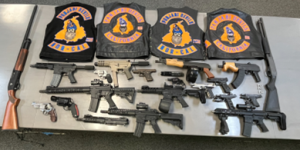Prescription Drug Abuse
The Facts about Prescription Drug Abuse
Drug use affects every sector of society, straining our economy, our healthcare and criminal justice systems, and endangering the futures of young people. Prescription drug abuse is the Nation's fastest-growing drug problem and has been classified as an epidemic by the Centers for Disease Control and Prevention. Some individuals who misuse prescription drugs, particularly teens, believe these substances are safer than illicit drugs because they are prescribed by a healthcare professional and dispensed by a pharmacist. They are wrong.
Research shows an association between drug use and traffic accident deaths, lost productivity and poorer academic performance. Preventing drug use before it begins is a cost-effective and common-sense approach that can save lives, cut costs related to healthcare and criminal justice, and promote safe, healthy communities. Learn more about the prescription drug abuse epidemic from the Centers for Disease Control and Prevention.
What You Can Do
Because prescription drugs are legal, they are easily accessible. All of us, including parents, consumers, the medical community, law enforcement, and all levels of government have a role to play in reducing prescription drug abuse.
- Follow disposal guidelines: We can all help address this issue, starting in our own homes. By following prescription drug disposal guidelines, you reduce the risk of unintentional diversion or harm. Use these links to learn how to dispose of unused medicines and to read frequently asked questions about safe drug disposal: how to dispose of unused medicines.
- Take advantage of community take-back programs: One way to dispose of expired or unnecessary prescription drugs is through community take-back programs. Call your city or county government's household trash and recycling service, or your local police or sheriff's department to see if a take-back program is available in your community. You can also visit http://www.americanmedicinechest.com to find an authorized drop off location near you.
- Talk to your kids: It's important that our children learn about the use and abuse of prescription drugs. For tips on having conversations about prescription drug abuse with youth, check out the Parent Toolkitat the Partnership for Drug-Free Kids.
- Seek treatment and support individuals in recovery: Thousands of individuals who have struggled with substance abuse have been able to overcome it with the help of treatment and recovery services. If you or a loved one needs help with a substance use disorder seek treatment today.
Other Resources
Information for parents and educators
Information for teens
Drug-Free Community Support Program
Annual Grant Opportunities for Community-Based Coalitions
The Drug-Free Communities Support Program (DFC) is a federal grant program that provides funding to community-based coalitions that organize to prevent youth substance use. Since the passage of the DFC Act in 1997, the DFC Program has funded more than 2,000 coalitions and currently mobilizes nearly 9,000 community volunteers across the country. In general, a new Request for Applications (RFA) is issued every January, and applications are due in March.
Report Suspected Violations of Controlled Substances Laws and Regulations
Do you have a tip for the DEA? Submit it online. If you would prefer to speak to an Agent, contact your local DEA Division Office.

 U.S. Department
of Justice
U.S. Department
of Justice
